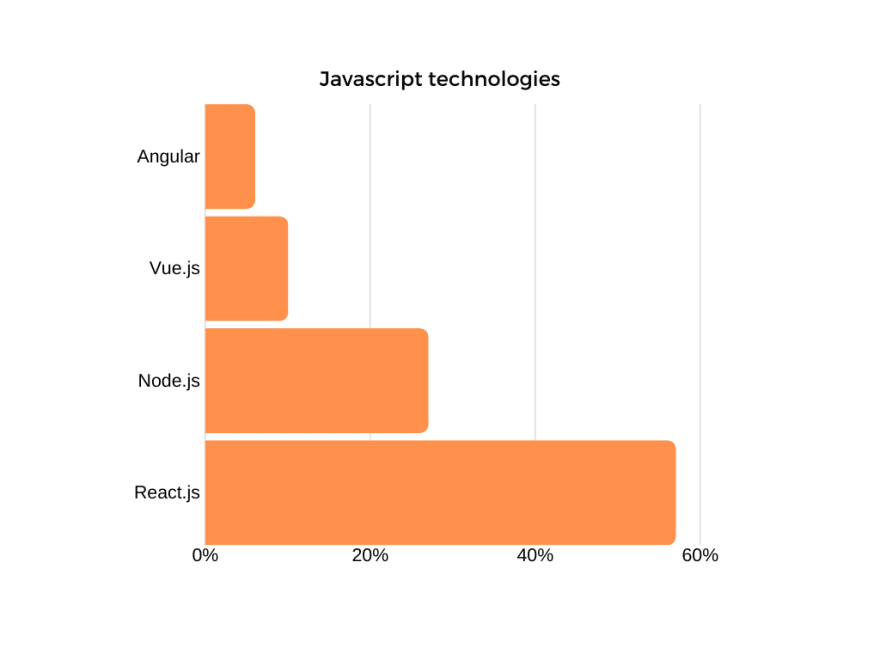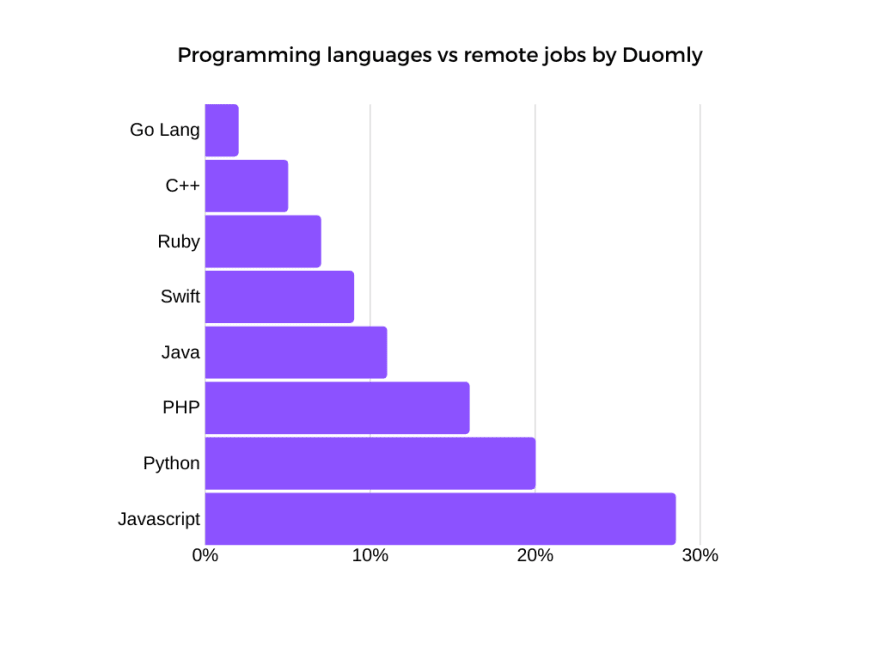I recently noticed, remote working is a very interesting subject for many people. This makes me think, most of us would like to get a job, with the possibility of working from home, and have an option, to choose if you prefer to go to the office and meet people, or if you prefer to stay at home to work from your own desk.
Of course, it’s not possible in every profession; for example, for a doctor who has planned surgery, it can be hard to do it remotely, but for many office workers, it is easily possible. A lot depends on the company and management, but as there are more and more technologies allowing to cooperate with people easily, and the only condition is a good internet connection, many companies start to see it as a very beneficial form of cooperation.
Remote work became very common in startups, which have a limited budget because they could select good specialists from many different locations, and the people in different countries have different financial expectations. But it also showed for companies that giving employees some freedom may bring a big increase in productivity and big savings on the office facilities.
To help those of you who are interested in getting a remote job offer as a programmer, I went through the most popular websites and checked which technologies will make it easy.
Let’s take a look.
1.Javascript
During the research I’ve done, Javascript came as a king of the technologies which allows working remotely. The biggest amount of job offers for remote programmers required knowledge of Javascript, and having this programming language in your CV will make the search for remote job much easier.
Taking into consideration, that Javascript is used mostly with a framework, for front-end or back-end, the best solution is to learn React.js, as it’s the most popular front-end technology among the Javascript remote job offers.
The second most popular framework for Javascript is Node.js. It allows working with the back-end using JS programming language. It has common usage in startups, but also bigger companies use Node.js lately. So, if you are interested in a back-end or full-stack remote position, it's worth to learn.
A little bit less common are VueJS and Angular. VueJS is still a framework with growing popularity, so not such a good position, but still, if you know one of those technologies, you have an option to get one of the existing offers.
2. Python
Python is a popular programming language used with Django in web development, but with significant growth of Machine Learning, popularity Python popularity grew a lot. Now, it is the second most popular programming language allowing us to get a remote job.
Python remote job offers mainly mention AI, Machine Learning, and data science, so if you are a Python developer, it's definitely good idea to dive deeper into those subjects to increase your chances to get an opportunity allowing for home office.
3. PHP
PHP is one of theses technologies which were commonly used a few years ago, but there are still projects written using PHP and developer who can work with this programming language are needed.
PHP is used with frameworks like Zend or Symfony but also to create custom templates for Wordpress, a very popular Content Management System.
If you are an experienced PHP developer, you can easily jump into one of those remote positions.
4. Java
Java is a very popular backend language commonly used with Spring or Hibernate frameworks. There are a lot of remote opportunities for backend developers knowing Java or Kotlin.
With backend technologies, it's also common then knowledge of SQL and databases are required, but I guess if you are an experienced backend developer, you probably know it.
If you now choose what technology to learn to have this comfortable situation to select from plenty of remote jobs, then keep this information in mind.
5. Swift
Another technology that is popular among remote job offers is Swift. It's a relatively new programming language. Swift was created in 2014, and it's a programming language to program devices with the IOS system. The language is a successor of Objective-C language, and it was created partially by Apple company and Chris Lattner.
Taking into consideration that it's a new technology it may be a great idea to learn it because the competition in getting the job can be quite small.
6. Ruby
The popularity of Ruby programming language in remote job offers comes mostly from Ruby on Rails web application framework. Code in Ruby on Rails is very readable and self-documenting.
As Ruby on Rails programmer, you may select from lots of opportunities for remote jobs.
7. C++
Companies use C++ to create high-performance applications because the compilation and execution of this programming language are much better than other multipurpose languages.
Using C++, we are able to create browsers engines, databases, banking applications, etc.
C++ is not very common in small companies and startups, but big companies offer home office as well, so if you are a C++ developer, no worries, you still can get a remote job.
8. Go Lang
Go Lang is a very young programming language created by Google engineers. It connects the ease of writing apps with the good performance of compiled languages. Go lang is used in projects with IoT, machine learning, and robotics, so it's a technology with huge potential.
If you didn't make your choice about technology to learn, this one could be a great choice for the future. In the case of remote jobs, its good to remember that the amount of Go lang developers is very limited, so competition won't be tough.
Conclusion
Taking a look at the chart above, you can clearly see that Javascript leads in the number of remote job offers. The reason is that most of the web and mobile apps need a front-end, which is done in most cases using Javascript and it’s frameworks. But there are also some cons of selecting Javascript as your main technology to look for remote work; the biggest one is that the amount of resumes which recruiters got for one remote JS position is really big, and it may be hard to get noticed.
Another solution then selecting the most popular programming language for remote job offers is to learn a new technology, which is not very common among developers yet. Then you have a chance to make your resume noticeable very easily, as you are the one who has needed skills.
Another way to get the remote dream job may be to learn an older technology like PHP, which is still commonly used, and job offers for remote employees are pretty common, but in this case, your salary probably won’t be such impressive as in new technologies case.
The choice belongs to you if you prefer to learn the newest things, or you want to work with popular or a little older technologies. But whether the choice you will make, there is a big chance to get the job, allowing you to work remotely.
Good luck with your remote jobs!










Top comments (9)
I worked remotely for 7 years. While it was very nice there were some challenges 1) You most likely will not be a part of inner-circle decision making 2) Your inter-company relationships suffer. 3) Not everyone at work appreciates the dial-in meeting person, and 4) Dogs bark at unexpected times.
I'd highly suggest adding .NET to this list. There are many companies (the one I'm at included) that are hungry for great .NET developers and would happily be open to remote work to get one. Both of the senior .NET resources at my company are remote, for instance.
I've got the .NET skills and I've gotten some remote contracts with C#.NET, MVC, .NET Web Apis. I still get a lot of resistance in my home state wanting me to drive 50 miles north to Denver here in Colorado. I wish every project was remote.
Hi, @isaac .
Do you know where one can find .NET Remote jobs? I find that most remote jobs are mostly skewed toward Javascript.
Thanks.
This is so true! when i started my journey to the full stack development job (and now that i am a full stack developer i'm in my journey to Software Engineer job) i started searching frontend developer remote jobs, about 70% of the jobs that i applied React.js and node.js where a mandatory requirement and others where MERN stack dev jobs, react is the best framework to learn if you want to get a remote dev job fast, nice post, thanks for sharing, it made me remember when i started working as a developer, regards.
After .NET I started on Angular, Node, Express and mongoDB the basic MEAN stack. Then I noticed there were more React jobs. I've since dug more into React Native and some Redux. I think its time to focus more on React and less on Angular. Even though I like Angular (now up to v 7) I want the remote work more.
That happened to me too, i really like Angular but React has more job offers and more remote work!
My 2020 training plan and learning objective is highly driven by my focus on a steady remote work scenario. I have of late been fascinated by the concept of AI and ML. That combined with the popularity of Python and the link of Python to AI and ML code sets a very clear path for me.
That should keep me busy and hopefully I'll get more steady remote contracts.
Right now I'm in with .NET Core, MVC, C#.NET, Web Api, Angular, Node, Express and some React. Every now and then when I see an old COBOL, DB2, requirement I wonder if I should have stuck there. But honestly none of the companies still using that ancient technology will give in an inch on remote.
Could you please provide a traceable link (or reference) to the source of each infographic in this post? I wanted to trace them for fact checking, but couldn't.